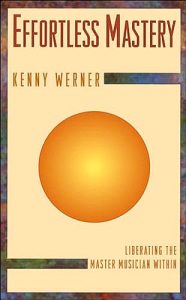Tricks for Tackling Performance Anxiety
Words by Shawn L. Royer, PhD
Performance anxiety is real and lots of performers experience it. Even Eminem rapped about his own experiences with performance anxiety at the beginning of Lose Yourself from the soundtrack to “8 Mile,” a fictional movie that is loosely based on his early experiences in music.
His palms are sweaty, knees weak, arms are heavy
There’s vomit on his sweater already, mom’s spaghetti
He’s nervous, but on the surface he looks calm and ready
To drop bombs, but he keeps on forgetting
What he wrote down, the whole crowd oh so loud
He opens his mouth, but the words won’t come out
He’s chokin’ now, everybody’s jokin’ now
The clock’s run out, time’s up over, blouww!
Words by Marshall Mathers (Eminem)
 In Eminem’s description, Rabbit (the rapper that is played by Eminem in “8 Mile”) exhibits real physical symptoms of anxiety (sweaty palms, weak knees, nausea, vomiting, and issues with memory) that seem to be in direct response to his impending rap battle. While we all may not be amateur rappers, many musicians can probably relate to feeling these types of feelings and physical responses while waiting in the green room before a performance… and isn’t that why it’s called a green room after all?
In Eminem’s description, Rabbit (the rapper that is played by Eminem in “8 Mile”) exhibits real physical symptoms of anxiety (sweaty palms, weak knees, nausea, vomiting, and issues with memory) that seem to be in direct response to his impending rap battle. While we all may not be amateur rappers, many musicians can probably relate to feeling these types of feelings and physical responses while waiting in the green room before a performance… and isn’t that why it’s called a green room after all?
Full disclosure
I am not a therapist or a psychologist, I have never played one on T.V., and I have never focused my research in the areas of performance anxiety or mindfulness. I am simply an experienced educator and professional musician. Anything I am sharing here comes from my own experiences in these roles. It is my hope that the information I am sharing may potentially be helpful to other music educators as you offer advice to your students.
My experiences
During my development from a young student into an advanced musician, I studied both jazz and classical music. One thing I noticed about myself was that as I achieved more recognition and won more competitions, the expectations that I had for myself (and the expectations that I imagined others had for me, whether true or not) became more demanding. As the stakes became higher, I noticed that I became more and more nervous before major performances and auditions. In fact, as I got older, the feelings would start happening longer before the actual event – in other words, rather than just feeling nervous in the green room, I was getting nervous weeks before the performances.
The feelings I began feeling during that time were more than just nervousness. I began feeling physical symptoms similar to those described by Eminem above. I often had trouble sleeping and eating. I was told that the key to overcoming these feelings of “performance anxiety” was to be over-prepared for the auditions and performances. I am sure that the 6-8 hours that I spent practicing each day certainly helped me to perform better and to make less mistakes in my performances, but it did not do much – if anything – to lessen the feelings of anxiety that I was feeling.
I also noticed the same feelings made their ways into my job interviews. If I had an interview where I really wanted the job, I was so nervous that I undoubtedly overthought things and sometimes forgot things that I should have said. I have relived those embarrassing moments over and over in my mind when I said the dumbest things! On the other hand, whenever I interviewed for a job that I didn’t really care if I got, I would typically get the job. I wasn’t any more or less qualified for those jobs, but I was a lot more calm in those interviews. As a result, I spoke more naturally, really connected with my interviewer, and my natural humor flowed effortlessly at appropriate times.
Unfortunately, I have had friends and acquaintances that self-medicated in unhealthy ways as a means of dealing with performance anxiety. Some people have abused prescription drugs while others would drink alcohol to “loosen up” before a performance. I have seen these same people often become reliant on drugs or addicted to alcohol. Perhaps just as bad as the addiction is the fact that the alcohol and drugs do not make the musicians play better, they just make the musicians think that they are playing better.
What has worked for me (and many of my students)
One summer late in my high school years, I attended one of the Jamey Aebersold summer jazz camps. During this particular summer, Harry Pickens was a guest speaker. I don’t remember everything that he said to us, but I remember that it involved some kind of visualization exercises and this may have been the same talk in which Effortless Mastery was brought up. Effortless Mastery is a book written by jazz pianist, Kenny Werner (1996), intended to help jazz musicians deal with performance anxiety. The book includes a code to access MP3s (it used to be a CD back in the day…). These tracks are guided meditations with gentle jazz piano chords played in the background.
 The point of the meditation tracks, in my understanding, is twofold. First, the tracks teach you how to purposefully relax your body and mind to get you into that zone. By zone, I’m referring to that space that you might find in a practice room when you know there is nobody else around, when you close your eyes and your fingers are learning the patterns but your mind is able to wander to other thoughts. This state of consciousness could be loosely compared to an out-of-body experience in that you are aware of what is happening in your practice session, but you are thinking about other things and almost observing yourself from an outside perspective.
The point of the meditation tracks, in my understanding, is twofold. First, the tracks teach you how to purposefully relax your body and mind to get you into that zone. By zone, I’m referring to that space that you might find in a practice room when you know there is nobody else around, when you close your eyes and your fingers are learning the patterns but your mind is able to wander to other thoughts. This state of consciousness could be loosely compared to an out-of-body experience in that you are aware of what is happening in your practice session, but you are thinking about other things and almost observing yourself from an outside perspective.
In addition to teaching you how to find the zone when you want to find it, the second purpose of the meditation tracks is to take you through some visualization exercises while in that meditative zone. During one of the visualization exercises, the narrator has the listener imagine that they see themselves playing their instrument on a stage. Since they are in the zone, they can just notice and observe their nervous feelings and their physical responses while taking those slow, deep breaths, but they do not have to succumb to those feelings. The narrator tells the listener that, while they are observing themselves on the stage, they are hearing the most beautiful music they’ve ever heard, but all they are doing is breathing.
By practicing the meditation exercises in the book with the audio tracks regularly, I learned how to mentally enter that zone quickly and on demand. I also learned that I do not have to react to what happens during a performance, but instead, I could be in complete control of every note and every sound… kind of like learning how to be in control of the musical matrix (yes, another 90s reference…).
I was able to apply the lessons I learned from Effortless Mastery into not only my performances, but also into my daily life. When I start to feel those feelings creeping up, I often stop myself, take some deep breaths, and find the zone. It’s not enough to just take deep breaths, but I also have to purposefully relax every muscle one at a time, and purposefully find that mental space.
In addition to improvements in my ability to overcome performance anxiety, I have also developed the ability to “act like I’m not nervous” when I have to speak in front of or direct a group of musicians. What I mean by this is that when I get up to present at a conference or direct an ensemble of new musicians that I haven’t worked with yet, I become an actor.
I still feel nervous at first. However, I have noticed throughout my career that the best leaders and ensemble directors always seem to have complete control of the room – as if they own the room – and they don’t seem to be nervous at all. I decided early on to just pretend that I wasn’t nervous. So, like an actor, when I step up on the podium, I am stepping onto a stage and I just act like I’m not nervous. Pretty soon, I start to really embrace my character. The feelings of nervousness transform into feelings of excitement. I feel energized. In this way, I have learned to literally transform those nervous feelings into productive energy.
Closing
While these techniques have worked for me and many of my students over the years, I recognize that everyone experiences feelings of anxiety and performance anxiety in different ways and to differing degrees. For some, performance anxiety can be completely debilitating. If you are experiencing severe performance anxiety, it may be best to speak to a certified therapist and/or medical professional, especially if these suggestions do not work for you. However, learning how to find and function in the zone can often help alleviate or mediate performance anxiety, while learning how to act like you’re not nervous may help you actually overcome your nerves. Keep this advice in mind before your next rap battle!
 Dr. Shawn Royer (she/her) is an Assistant Professor and Chair of the Music Department at Marian University in Indianapolis. She plays clarinet and saxophone professionally as a Yamaha Performing Artist and Vandoren Artist Clinician.
Dr. Shawn Royer (she/her) is an Assistant Professor and Chair of the Music Department at Marian University in Indianapolis. She plays clarinet and saxophone professionally as a Yamaha Performing Artist and Vandoren Artist Clinician.
Facebook: @SR4JazzClarinet
shawnroyerjazz.com







Tricks for Tackling Performance Anxiety
“Music is the one incorporeal entrance into the higher world of knowledge which comprehends mankind but which mankind cannot comprehend. Lud.V.B.”
Ludwig van Beethoven